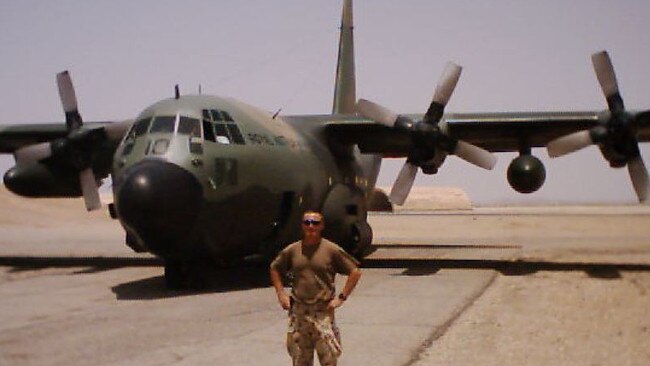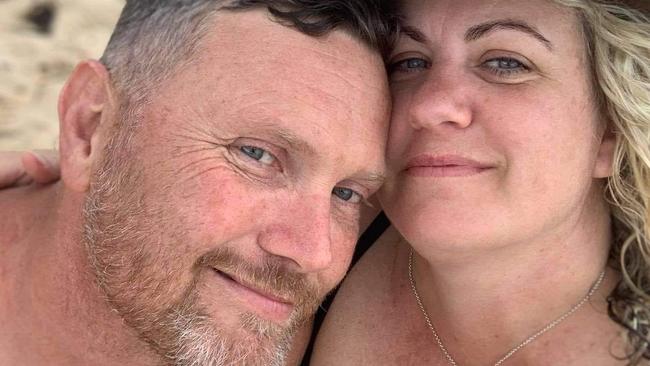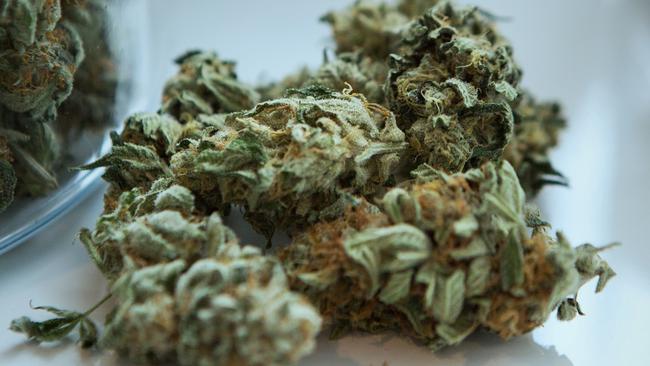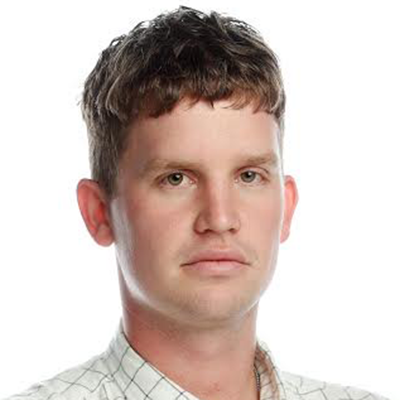Push for DVA to recognise cannabis as viable veteran PTSD treatment
If Iraq war veteran Derek Pyrah had of lied to the Department of Veterans’ Affairs he would be able to receive subsidies for medical cannabis medication to help with his PTSD.
NSW
Don't miss out on the headlines from NSW. Followed categories will be added to My News.
If Iraq war veteran Derek Pyrah told the government he had chronic pain rather than Post Traumatic Stress Disorder he would be able to afford the medication he needs to stay alive.
But regulations from the Department of Veterans’ Affairs means the Wollongong man cannot afford the medicinal cannabis he needs to function. Currently, the department only subsidises cannabis drug for pain – not PTSD.
Without the drug the 46-year-old said he would be dead.
The trauma of his deployment to Iraq in 2003 has stayed with him.
He was one of the first troops on the ground as part of a communications team from the air force tasked with setting up the infrastructure that would allow F18s and other implements to fly safely in the war.

Post traumatic stress has clouded his memory, and the years since, but during his stint there he remembers very clearly the trigger for the illness.
“At the time our base was on Qatar, a pimple of a country near Saudi Arabia where rich men and women live,” he said.
“We were sitting around having a beer. Then this alarm system went off, telling us we were under attack. You couldn’t see an attack so there was a lot of confusion but then a bunch of guys started getting symptoms of a chemical or biological attack.
“We were racing to get our gear on with our throats burning or a burning sensation on our arms. For about an hour I was lying there certain I was going to die.”
Since returning to Wollongong in 2004 and being discharged from the air force he has been treated for post-traumatic stress.
He was awarded a gold card and lives on a medical pension, he is very appreciative of both.
“I feel torn about them. DVA supports me financially and they have helped with some medical treatment. I can’t work and without them, I would be helpless,” he said.
“But I was also treated from 2005 to 2015 with their medication and therapies and never got better. I was suicidal, I was hospitalised, I was not improving.
“Once I started taking cannabis my life changed. I was able to function again. I had a smile on my face.”

Mr Pyrah first experimented with the drug illegally in 2016 after watching a documentary on how US veterans used cannabis.
He tried to legally obtain the drug but could not afford it until 2020.
His prescribing doctor has taken up the fight with DVA to prove that the evidence is available which shows cannabis can be used to effectively support veterans with PTSD.
Dr Matthew Moore has been prescribing cannabis since it was legalised in 2016.
He said the majority of his patients are “conservative folk over the age of 60” rather than the hippies he thought he would have walking through his door.
“The top three diagnoses for medical cannabis prescribing would be chronic pain, which is about 60 per cent of my patients, anxiety and depression and nerve pain,” he said.
“There is a large bias with cannabis. The most common claims around cannabis and PTSD is that there is not enough evidence to prove it works. This isn’t true.
“There are studies which show it is effective with stress disorders. PTSD triggers the hyperarousal of our fight or flight systems – THC and CBD is proven to help stabilise those triggers.”

Mr Pyrah‘s lawyer Mat Henderson, who acts for veterans using cannabis on a pro bono basis, told The Sunday Telegraph he will help Mr Pyrah lobby the DVA for subsidies of medicinal cannabis
In the US, cannabis has been used to treat veteran’s PTSD.
A 2015 study into the effectiveness of nabilone, a synthetic cannabinoid, found that the drug provided significant relief for military personnel with PTSD and it shows promise as a clinically-relevant treatment for patients with nightmares and a history of non-response to traditional therapies.
A DVA spokesman said they only fund treatment where there is a “clear evidence”.
“Scientific studies have shown medicinal cannabis to be effective in treating chronic pain in adults, chemotherapy-induced nausea and vomiting and multiple sclerosis. In 2018, DVA developed a framework for funding medicinal cannabis for treating these conditions,” he said.
“There is currently limited evidence supporting the use of medicinal cannabis as an effective treatment for mental health conditions, including for post-traumatic stress disorder.”





